BUP Science and Sail 2023
The BUP’s annual summer school was held in Klaipėda, Lithuania, hosted by Klaipėda University in July 2023. This year’s iteration was called Science and Sail, and focused on the Baltic Sea Environment with students studying on both sea and land with leading experts from across the region. The BUP summer schools offer students the chance to conduct hands-on fieldwork related to issues of sustainability and the ability to take part in a diverse programme, all whilst discovering a new location in the Baltic Sea Region and meeting a new group of peers. A total of 35 students from 26 of the BUP participating universities and all 10 countries within the BUP network joined the event.
Program
The summer school programme was anchored by four days of fieldwork based in and around Klaipėda. The students rotated around these days in smaller groups. Activities included;
- Baltic Sea coastal hydrology- based on Klaipėda University’s tall ship s/v Brabander, with a focus on water sampling, sailing practice, depth profiles and salinity invesitgations.
- Baltic Sea sand beaches- located in Karklė, with a focus on shorelines mapping, beach profiles and GIS.
- Baltic Sea coastal sand dunes- a full day excursion on the Curonian Spit with a focus on biodiversity.
- Baltic Sea coastal birds- ecology and counting of coastal cormorant colony in the Placis lagoon.
In addition, students also attended lectures, went on specialised site visits to Klaipėda University’s Marine Research Institute and Botanical Garden, took part in a guided tour, gave presentations and worked throughout on various pedagogical tasks within the program.
Objectives
BUP summer schools and Science and Sail in particular, aim at giving students from BUP member countries and participating universities the chance to meet, discuss, network, sample and research scientific issues with a focus on sustainability in an international and interdisciplinary manner.
This summer school helps to enrich the student’s perspectives about sustainability and the Baltic Sea Region with new experiences and viewpoints. The summer school thus serves as a realisation of regional issues- both challenges and solutions.
Science and Sail had various specific aims:
- Improve the knowledge of students on the Baltic Sea Environment and its importance for the societies and economies of the region.
- Reflect and explore different indicators related to the Baltic Sea Environment.
- Teach students techniques to solve environmental problems from an interdisciplinary and practical approach and link them to climate change.
- Build skills in intercultural and interdisciplinary cooperation.
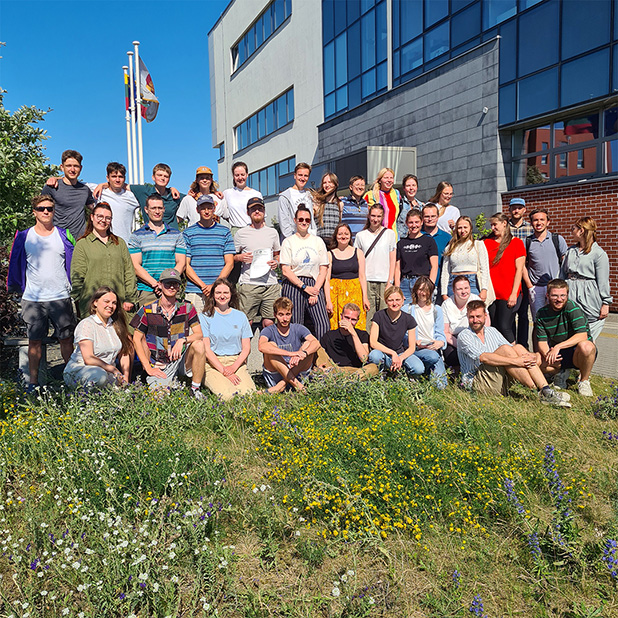
Participants after successfully completing the Science and Sail at Klaipeda University. Photo: Pontus Ambros
Evaluation of the event
All participating students were asked to complete an evaluation on the final day of the summer school. This was completed by 31 of the students. Prior to the event, students held an average expectation of 7.61/10, therefore it is pleasing to receive an overall rating which exceeded these expectations. Particularly praised was the communication with both the BUP staff and Lithuanian colleagues, a unique range of activities, the accommodation and the storytelling based group project. The location too of Klaipėda was also enjoyed. Students liked the city and the proximity of nature, particularly the beaches.
The BUP is always looking to improve our summer schools, and therefore welcomes areas in which there is room to improve. Of particular note from Science and Sail is including further icebreaker activities, providing example materials and more feedback for the group project, providing more food as well as more diverse vegetarian and vegan options and remodelling some of the fieldwork activities to include a greater scientific focus and a more structured work package.
Participant evaluations
- The students gave the event a 9.35/10 overall rating. This is the BUP’s highest rating for a summer school.
- The students gave the communication with the BUP staff during the event a 9.70/10 rating.
- Students noted that the event was worthwhile in attending, giving an 8.80/10 rating, consistently noting aquiring new knowledge, a new network of contacts and a new appreciation for the Baltic environment.
Voices of participants
Ada Kamińska - Participant from Adam Mickiewicz University
Before attending, I expected a big adventure with new and exciting experiences and meeting interesting people. My expectations came true and I am so happy, this was the best trip of my life!
I will especially remember the amazing opportunity of being onboard the tall ship Brabander. I have dreamed of going on a sail like this for a long time and this was an incredible possibility to sail and help the crew onboard. But then again the dunes of the Curonian spit won my heart, it was incredible place and I hope I will be able to see them again in a few years.
This trip has certainly opened my eyes to the sustainability problems and what we need to do to make our existence more sustainable. These are things that we don’t really think about a lot in other fields of studies, so I will come back home and share my experience with my classmates at university.
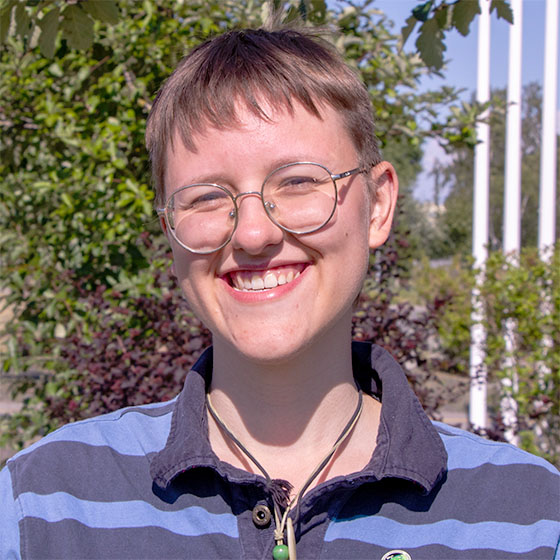
Vardo Peebo - Participant from Estonian University of Life Sciences
When first reading about this summer school, my main interest was the sailing part and meeting new people. Coming here I got to experience so much more than just sailing and many of the other field days were more interesting than the sailing itself. I liked the field trip to the dunes of the Curonian Spit and the visit to the Cormorant colony. It was such a unique experience to visit a Cormorant colony and counting their nests.
I was also visiting Lithuania for the first time, which was a great and I have learned about many new ecosystem services from the animals and plants in our coastal environments. Finally I would like to emphasis the communications with other students and teachers. Rarely I have been in such a diverse group, something I cherish a lot!
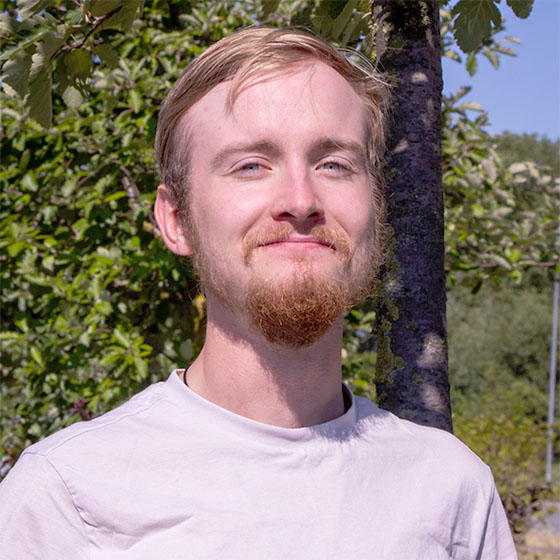
Anna Carlsson - Participant from Luleå University of Technology
I didn’t have a lot of expectations at first, more than some interesting conversation with people from different nationalities and backgrounds. Once coming to Klaipeda, my experience was far beyond my expectations.
The field day in the dunes of the Curonian Spit was among my favourites. The environment was unique and you don’t see this kind of environment very often. I now understand why it is a UNESCO World Heritage site. We also had so many great and interesting conversations, that would be the main thing I enjoyed the most. There were so many interesting views and aspects discussed with people from different places and fields.
Going back home, I will definitely bring the social interactions we have had, the whole interaction from different fields and background shows how we are all important to work together communicating and solving our common problems.
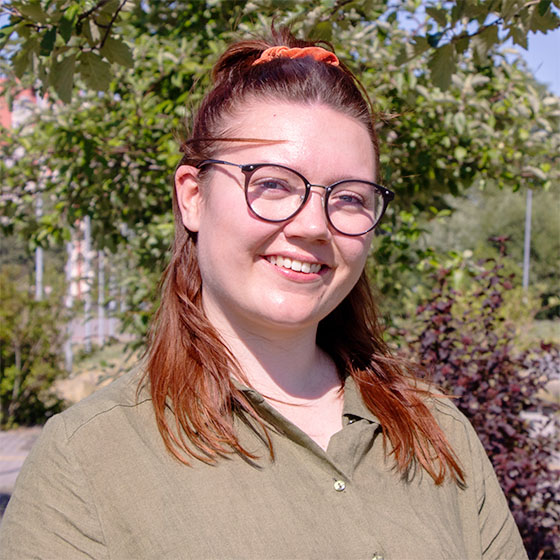
Images from Science and Sail
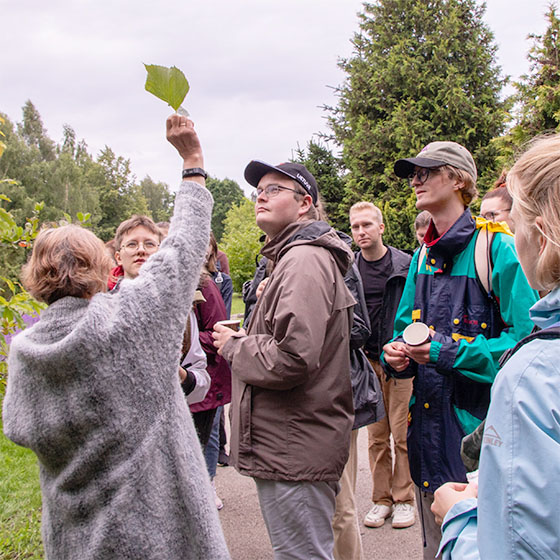
Photo: Pontus Ambros
Much of the event was spent outdoors, here the participants visited Klaipeda University's Bothanical Garden.
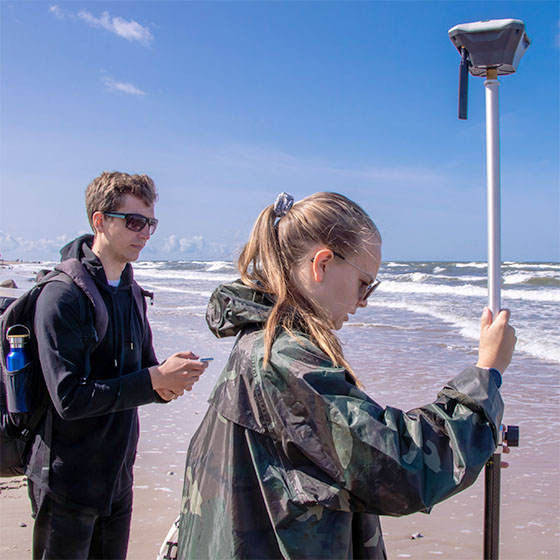
Photo: Pontus Ambros
The participants worked in teams and collected GPS coordinates to measure beach erosion on the dunes of the Curonian Spit.
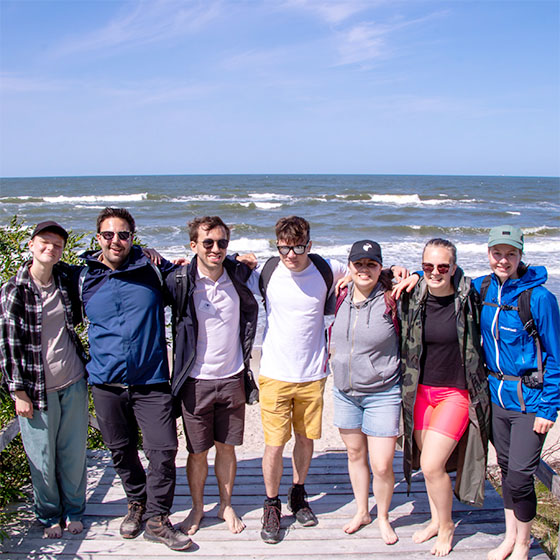
Photo: Pontus Ambros
The participants represented 26 BUP participating universities and they had the opportunity to meet new friends from all 10 member countries.
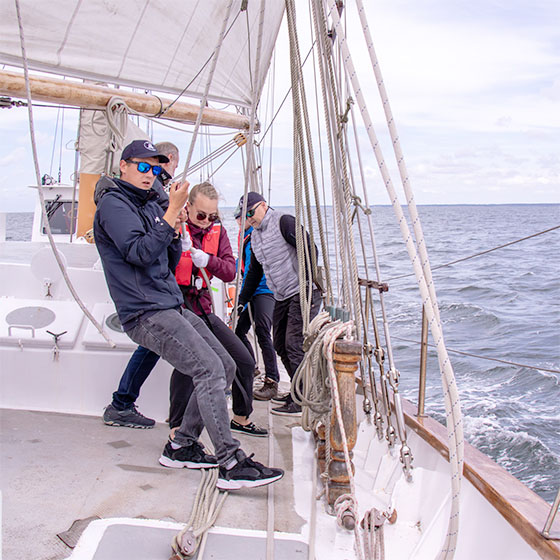
Photo: Pontus Ambros
Co-operation is key on a ship, something that the students learned first hand during their sail with the tall ship Brabander.
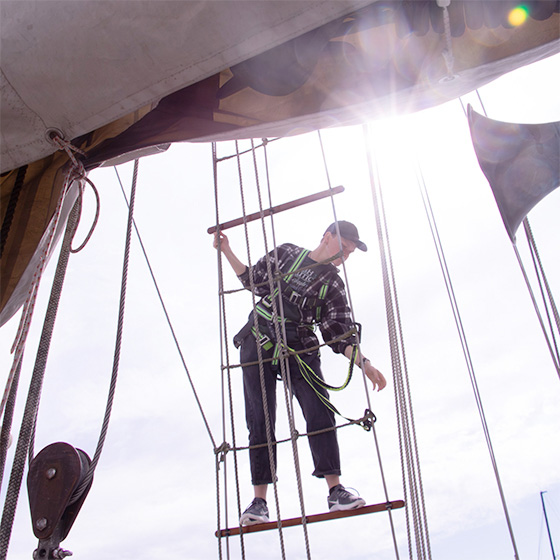
Photo: Pontus Ambros
The participating students also got the opportunity to learn more about life and work on a tall ship.
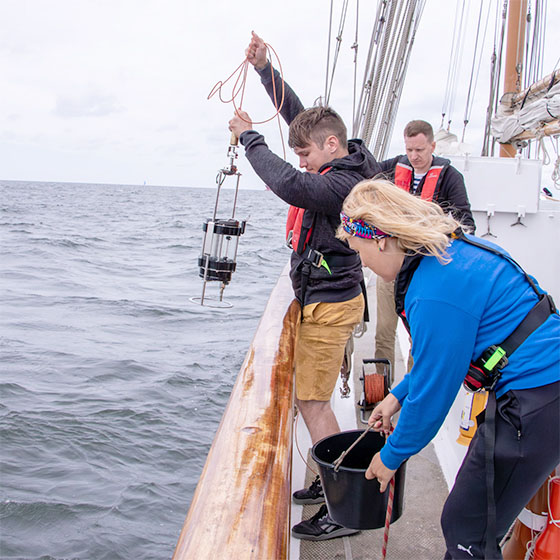
Photo: Pontus Ambros
While on the ship the students took water samples at sea where they checked temperature, oxygenation, visibility depth and salinity.
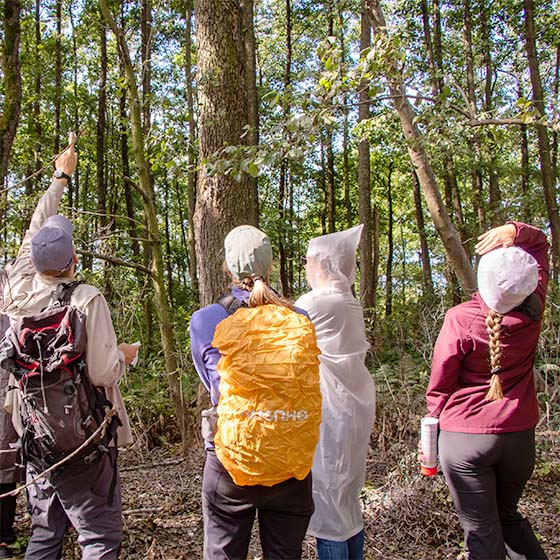
Photo: Pontus Ambros
On land the students got to count bird nests, to determine the size of a Great Cormorant colony.
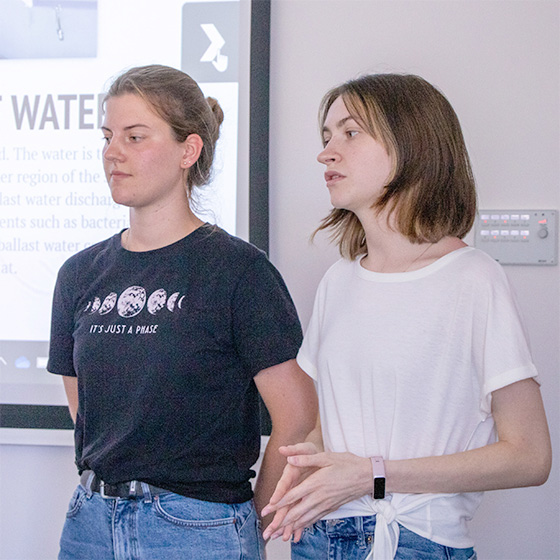
Photo: Pontus Ambros
Toward the end of the event the students gave group presentations focusing on what they had seen and learned.
